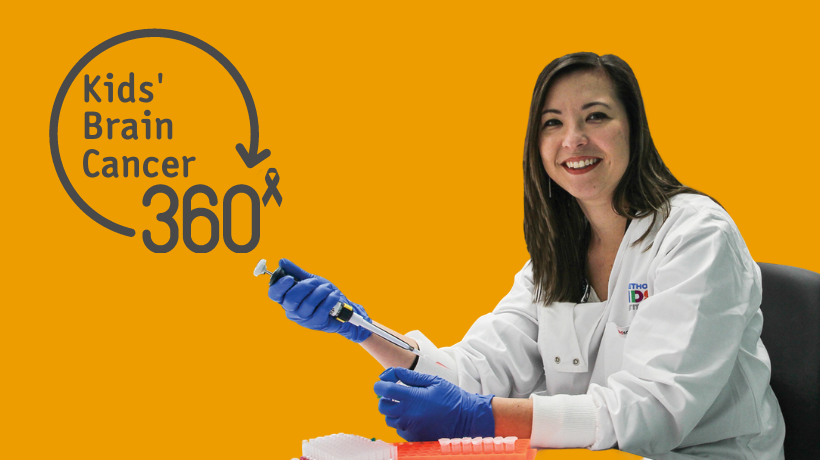KBC360 | Medical researcher Dr Raelene Endersby

Kids’ Brain Cancer 360 is an editorial series where The Kids’ Cancer Project takes a deep dive into the issues confronting children diagnosed with this, the deadliest disease faced by Australian families today, by speaking with a broad spectrum of carers
Today we hear from Dr Raelene Endersby, Co-Head of Brain Tumour Research, Telethon Kids Institute, who provides her perspective as a medical researcher whose career is dedicated to finding kinder, more effective treatments for children with brain cancer.
In terms of childhood brain cancer research, in 2021 we are in a relatively good place. We have made great progress towards what we want, which is better treatments in the clinic. There are still major hurdles to overcome though, to ensure there are more clinical trials and more clinical options for patients.
Why do I say we’re in a good place? Because we have a strong sense of where we will find the most promising new treatments. The last hurdle will be getting these treatments into clinical trials and getting the right patients into those trials.
Therefore, right now it feels as if we are well poised to begin significantly impacting patient outcomes in a positive way. To do this, we must focus on a few specific factors. They are:
Identifying the most effective and most promising treatments
We have a range of new options and treatments, and there will be more as the laboratory work becomes more mature. So, which do we take forward clinically? And how is it funded? Good quality laboratory-based research requires time and money. It requires funding and salaries to support trial-specific activities, as well as strong governance and regulation, because there’s risk involved.Ensuring global collaboration
When we’re dealing with rare cancers, we all have to work together. Researchers around the world are focusing on different areas, and that’s a positive. But it’s vital to constantly bring all of that international knowledge together, because to make the right decisions we need more data. Data drives informed decision making.Enabling clinical trials
Currently the oncology departments in children’s hospitals across Australia have a very limited capacity to do clinical research. Those in the public healthcare system, one in which the government pays for the children’s hospitals, typically don’t have the resources to do early-phase clinical trials. Often the oncologists and nurses are stretched thin just trying to deliver standard clinical service.
And so we need people with the right expertise, both in the lab and in the clinic, and we need investment in research, equipment and people, and oversight from a regulatory perspective. Without all of these ingredients, the job won’t be done properly.
The good news is that when we get it right, when we do the job properly, we’ll not only begin to see an improvement in survival rates but also a significant reduction in side effects. Our goal is not just greater survival rates, but better quality of life for survivors, too.

